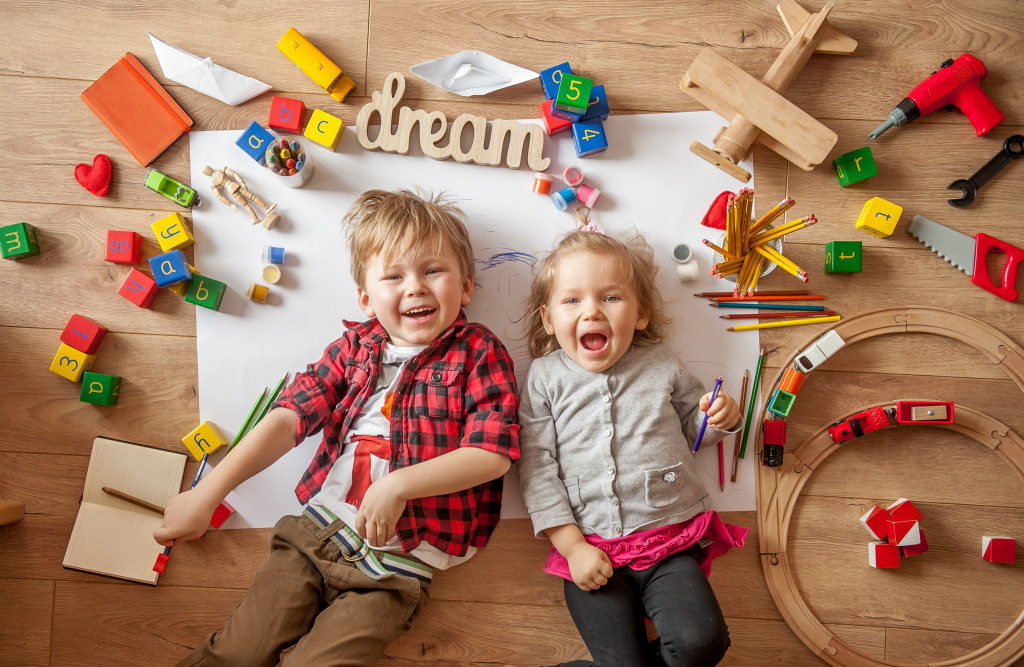Socialization is crucial for children, particularly in their formative years. As parents, it’s your job to make sure that they get the exposure and guidance they need to interact properly with the people around them. This is not to say that you have to make them the heart of every party.
It’s just as important to embrace your children’s unique disposition and never force them into situations that make them uncomfortable. Your goal is to make sure that, no matter if they’re extreme extroverts or introverts, they have the necessary know-how to make friends, keep them, and build strong social circles in the process.
The best time to start is before they reach kindergarten and are forced to interact with others on a near-daily basis. Fortunately, there are simple but highly effective ways to start building their social skills now to improve their chances of success.
Set the Standard
Setting the standard means setting the example you want them to live out. While you probably know this already, there’s a chance that you might be underestimating just how much your actions influence your children. You create the patterns in speech and action that become their norm. When they see you dread social interactions, they’ll inevitably feel that it’s something to avoid. When they hear you address others impolitely, they’ll start to do the same, even when you tell them that it’s a bad thing.
Your child’s success is largely dependent on your ability to set an agreeable standard. If you think there are areas you have to improve on in your own socialization, work on them. The better the example you set daily, the better the behavior your children will display towards others.
Organize Playdates
Do you have neighbors of the same age? Befriend their parents and organize playdates. Is there any child care center for your kid? As with everything, practice is important. This is when your children will show undesirable behaviors like refusing to share or starting fights.
Use this as an opportunity to teach them generosity and why it’s better to walk away than to hurt others. Hair-pulling, crying, complaining, and similar instances will happen. It’s better to address these now when they’re still open to learning, and it’s not difficult to reason with them yet. Helping them develop good habits in socializing will make their kindergarten years more manageable.
Maximize Play Time

It’s not only their playtime with others that presents learning opportunities. You can use your bonding moments at home to practice good behavior. Perhaps they refuse to let you borrow a crayon while you’re both coloring pictures. Talk to them about it and teach them the better alternative.
Let them know how you prefer them to respond, and listen to them if they reason out. Maybe they shared their crayons with another kid before, and that kid never returned them. That puts you in a position to teach them how to handle conflicts peacefully.
When you become intentional with your playtime, it becomes easier to instill the lessons you want them to learn.
Attend Family Gatherings
Family gatherings give your children a great chance to socialize with older people. This is important because they need to learn the difference in dynamic between socializing with people their age and those who are years older.
Moreover, family members create a safe space for your children to commit blunders, and you can trust that their aunts and uncles will be there to correct any rude behavior. It’s good for them to know that it’s not only you who will hold them accountable for their actions towards others.
Participate in the Community
How about socializing with others outside your family and immediate social circle? This is why you should participate in community events. Perhaps there are group activities set up by your local councils, like festive gatherings and volunteer opportunities.
Take your children whenever appropriate, and teach them how to navigate big crowds of strangers. Some children are naturally confident, and others feel nervous being surrounded by strangers. Make them feel safe, but don’t push them too hard as well. There will always be more activities you can attend together, and the more familiar they become, the more at ease they’ll eventually be.
Take Your Time
Learning good and acceptable social skills takes time. Manage your expectations, and appreciate the minor progress that your children make with each attempt. As long as you’re consistent and intentional, your efforts will surely pay off into their kindergarten years and beyond.







